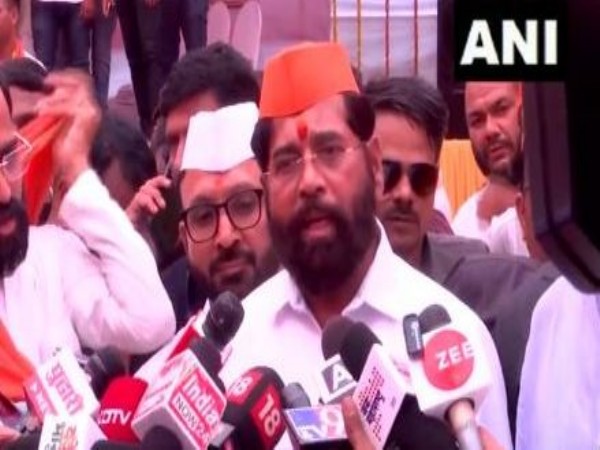Kathmandu's longest chariot festival honouring Lord of Rain begins
Mar 30, 2023

Kathmandu [Nepal], March 30 : The chariot procession of Seto Macchindranath, one of the biggest chariot festivals celebrated inside Kathmandu valley formally started on Wednesday evening as the chariot rolled towards the main city square.
Hundreds of women came onto the street to pull the chariot through the mass of devotees with the fall of the day. The three days long Seto Macchindranath Jatra or the chariot procession honouring the god of rain is also known as Jana Baha Dyah Jatra.
A skyscraping chariot of Seto Machindranath is pulled from Teendhara Pathsala, in front of the former Royal Palace and is toured around the city during these three days. Each day when the chariot reaches its terminus, a group of soldiers fires their rifles into the air.
"We (women) have been pulling the chariot of Seto Macchindranath from 2073 BS (2017 AD). Women are voluntarily participating in the procession," Nanira Maharjan, one of the members of the Baha Dyah Jatra organizing committee told ANI.
Seto Macchindranath is regarded as the god of contemporaneous and the god of rain who brings on rain and good harvest. After celebrating this festival, it is believed that there would be plenty of rainfall and famine would stay at bay.
Also, there is a belief that illness would get cured, there won't be a situation like that of famine and would bring prosperity upon taking part and witnessing the procession.
"We have been involved in the forefront of cultural activities for a long. Women have been pulling the chariot on Indra Jatra which has hit the record of 11 years, rising from that spirit we are continuing to come to the front. In this chariot procession of Baha Dyah Jatra (Seto Macchindranath Jatra), we have completed four years of taking lead to pull the chariot. Female members of society have come from various walks of life in order to encourage others as well, after undergoing demonstrations. The exact number of women participating in the procession can't be determined but we are here in about 200 in numbers," another participating woman, Shanta Prajapati told ANI.
According to myth, during the regime of Yakshya Malla, King of Kantipur, people used to bathe in a holy river and visit Swayambhunath which was believed to possess the power of sending people to heaven after death.
Once Yamraj (God of Death) came to know the power of Swayambhunath and visited the holy temple. At the time of his return from the temple, Yama was captured by King Yakshya Malla and his Guru who possessed powers and demanded immortality.
As the King and his Guru didn't let Yama escape, he prayed to Arya Awalokiteshwor (Seto Machhindranath) to free him. God heard his prayers and immediately appeared from the water.
The god was white in colour with his eyes half-closed. He told the king to build a temple where Kalmati and Bagmati met and to organize a chariot procession so that God could visit the people and bless them with contentment and long life. Since then, people started to celebrate this 3 days long procession to honour the god.
















